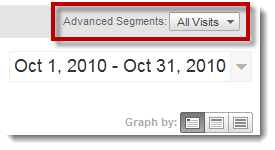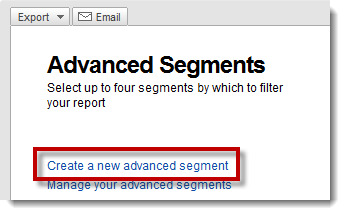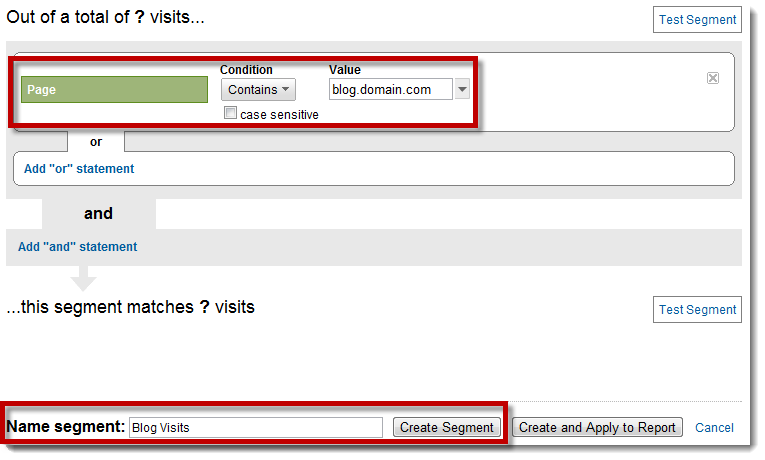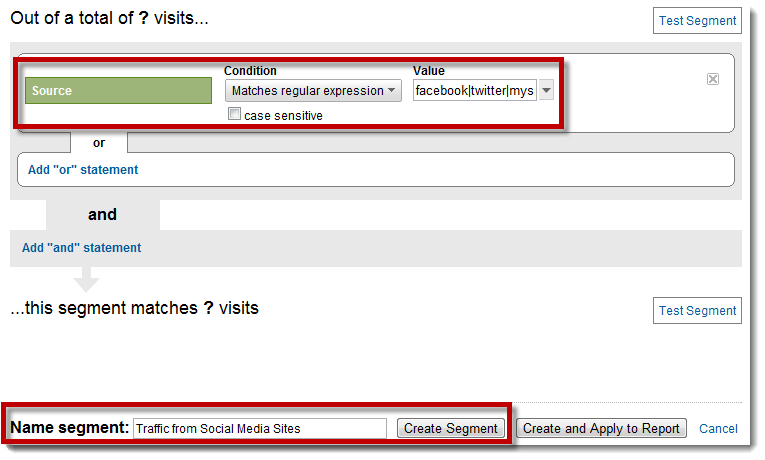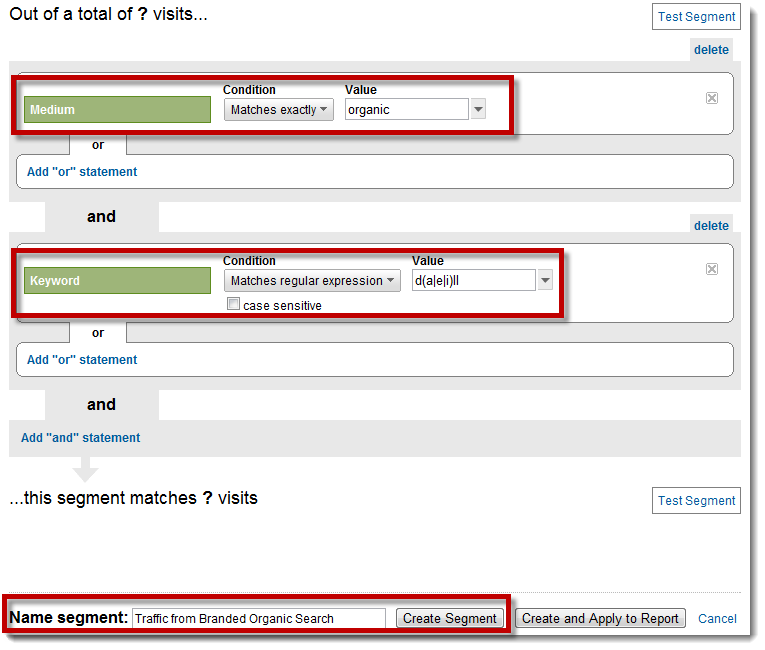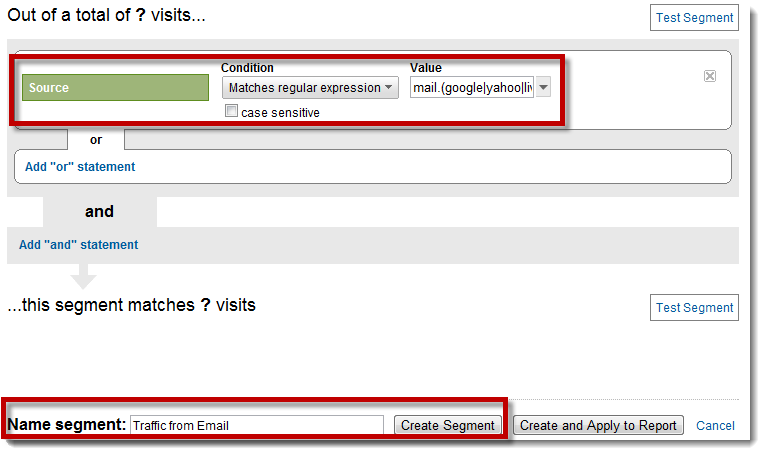Google Analytics is an extremely powerful tool - especially if you look beyond the standard reports. You can even use Google Analytics to gauge your social media efforts, and here are 4 advanced segments that you can create in GA to do just that.
We will be creating advanced segments to look at the following:
1. Blog and Forum Visits
2. Traffic from Social Media Sites
3. Traffic from Branded Organic Search
4. Traffic from Email
Custom Advanced Segments
In order to create a custom segment, first click on "All Visits" next to Advanced Segments.
Then click on "Create a new advanced segment" on the left.
Once segments have been created, they can be selected by clicking the Advanced Segments dropdown menu. To create or modify an advanced segment, follow the instructions below.
1. Blog and Forum Visits
Use the Page dimension with a value that is unique to the blog. This may be blog.domain.com, domain.com/blog, or other. Name the segment "Blog Visits" and click "Create Segment".
The same steps can be applied for viewing Forum visits, by replacing the value with forum.domain.com or domain.com/forum.
Here is an example for a blog.
2. Traffic from Social Media Sites
Use the Source dimension with a regular expression (regex) value of:
facebook|twitter|myspace|linkedin|stumbleupon|digg|youtube|flickr
Additional sites may need to be added here based on your website's niche, and the emergence of new social media sites. You can test for additional sites using this regex as a filter in the Referring Sites report.
Name the segment "Traffic from Social Media Sites" and click "Create Segment".
3. Traffic from Branded Organic Search
Two statements are used for this segment, joined by an "and" statement.
For the first statement, use the Medium dimension with a value of organic.
For the second statement, use the Keyword dimension with a regular expression that matches branded terms.
Try to create a regex that matches as many terms that should be counted as branded (including misspells), without including truly non-branded searches. You can test the regular expression (regex) as a filter in the Keywords report.
Name the segment "Traffic from Branded Organic Search" and click "Create Segment".
Below is a simple regex for computer maker Dell. It will match its branded term "dell", as well as the misspells "dall" and dill".
4. Traffic from Email
Use the Source dimension with a regular expression value of:
mail.(google|yahoo|live|aol|comcast|earthlink)
You can test for additional email services using this regex as a filter in the Referring Sites report.
Name the segment "Traffic from Email" and click "Create Segment".
Benefits of Using Advanced Segments
- They can be applied to historical data, to points in time when the segment hadn't been created yet.
- They can be applied to almost any report within Google Analytics.
- After they are created, they are saved within the profile and can be quickly accessed at any time.
- They are very flexible and easy to use.

